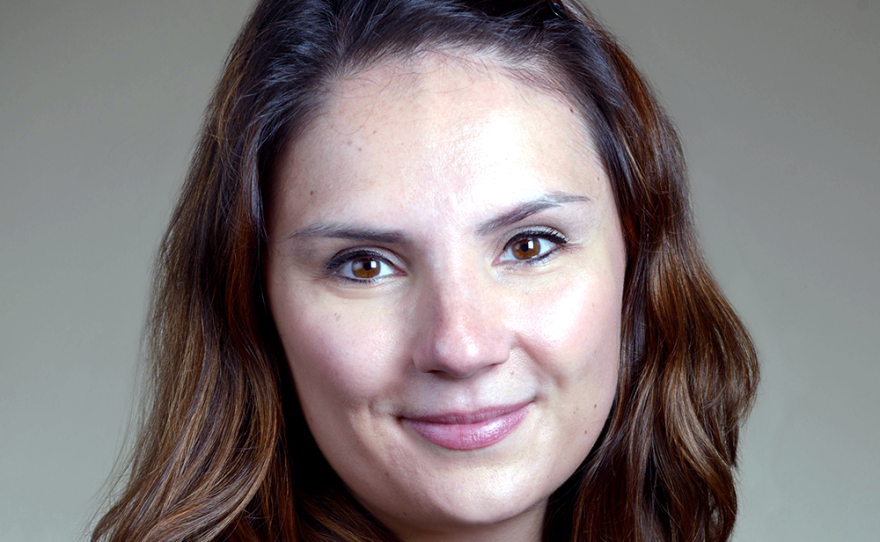Note: This story contains graphic descriptions about female genital mutilation.
For years, a distinguished UC San Diego economist has wanted to stop young girls in Kenya from undergoing genital mutilation by offering them and their families money toward education.
The ritual of female genital mutilation has been outlawed since 2011 in Kenya, but it continues among the Maasai, an ethnic group that celebrates the act as a rite of passage. Girls are restrained and their clitorises cut off without anesthesia using a knife, scissors, razor blades or broken glass. It's estimated that more than 100 million females have undergone the "cut" in more than 30 countries.
UCSD Professor Uri Gneezy thinks he can end the centuries-old practice within the Maasai community by using economic incentives, but research approval boards at his university worry that his study may do more harm than good.
The boards have said Gneezy’s plan is riddled with social, legal and ethical problems that far outweigh the study’s potential benefits. There are questions about child safety and how to ethically study an illegal act, as well as concerns about privacy, financial sustainability, cultural ignorance and Western arrogance.
“There's just no way this is ever going to be ethical or should be ethical,” said Dr. Timothy Johnson, a University of Michigan obstetrician and international women’s health researcher. Johnson said he thinks female genital mutilation “just is not a particularly good area to test economic incentives.”
After being rejected four times, Gneezy pitched his study to a UCSD review board again this summer. The members denied the study for a fifth time in late August.
RELATED: inewsource Reported This Story As Part Of Its Risky Research Series
inewsource analyzed more than 50,000 pages detailing proposed biomedical studies at the university. Most of the records go back to 2004.
We found no other human research study that has been denied this many times.
Gneezy said through a university spokeswoman that he wasn’t interested in talking about the topic because it’s sensitive. Members of his proposed research team also wouldn’t grant an interview.
Kip Kantelo, director of UCSD’s human research protections program, told inewsource he wouldn’t talk about the study’s details but acknowledged it is “very rare” for a board to disapprove research.
UCSD records detail Gneezy’s three-year battle with the university to get his Kenya project approved. They offer a rare glimpse into how decisions on risky research are made, how vulnerable populations are supposed to be protected and how even well-intentioned researchers can cross ethical lines.
A big name with a big idea
Gneezy is a behavioral economist and endowed chair at the UCSD Rady School of Management. His research often looks at money and how it can change behaviors when introduced into social contracts. He co-authored a book on the topic in 2013 in which he said his laboratory is “as big as the whole world.” He has been quoted in the Wall Street Journal, Vox, National Geographic and other publications.
His wife, Ayelet Gneezy, is an associate professor of marketing at the Rady School of Management. She co-founded a consulting firm with her husband that puts “behavioral economics to work.” She is also a researcher on the Kenya project.

Uri Gneezy’s academic papers have been cited nearly 30,000 times. He’s looked into a matrilineal society in Northeast India, gym habits in Norway and daycare centers in Israel.
Steven Levitt, an economist and co-author of the book “Freakonomics,” called Gneezy a genius – a true trailblazer with “the ability to see things that are completely obvious but to which everyone else is blind.”
Gneezy, 52, knows the Maasai. More than 1.5 million of them inhabit large swaths of Kenya and northern Tanzania, and research Gneezy published in 2008 examined competitive differences among the group’s men and women.
Wives in the strongly patriarchal society are “said to be less important to a man than his cattle,” according to Gneezy’s research. The Maasai mutilate their girls’ genitals as early as 10 years old, believing it makes women more desirable for marriage.

The practice also exists in the U.S., though it’s not nearly as prevalent. It has no health benefits and can cause severe bleeding, complications with childbirth and death – as well as extreme psychological trauma.
Gneezy wants to end female genital mutilation – calling it an “immoral cultural practice” in his research proposal – and by 2016 he had enlisted an international team of researchers to help.
Their original plan, according to a 2016 article detailing the study, was to have Kenyan nurses check 400 girls ranging in age from 8 to 12 to determine whether they had undergone genital mutilation. Researchers would pay the girls $30 for their time.
Gneezy’s team would then split the children into two groups, and for the next four years, girls in one group would receive a $1,000 scholarship toward the cost of school if they remained uncut. That’s half the cost of tuition, the article said.
Girls in the second group would be monitored but not receive the scholarship.
The purpose, according to the article, would be to “create a critical mass of girls who do not undergo circumcision and will also attend school, where they will be educated against the practice and learn that they have the right to reject it.”
Two Norwegian economists, Gneezy’s wife and a UCSD dean were committed to the project. A documentary filmmaker shot a promotional video for the study, and an Israeli reporter wrote in 2016 that the project would begin within a year.
But at that point, UCSD hadn’t approved the study. In fact, a few months after the reporter published her article, a UCSD review board denied Gneezy’s idea in a unanimous July 2016 decision.
If you or someone you know has undergone female genital mutilation and you're looking for help, you can explore these resources made available by The Nile Sisters, a San Diego nonprofit assisting refugee and immigrant families. Click here for a list of additional local resources and agencies that can help.
The board members said that because female genital mutilation is illegal, discovering which girls were already cut could threaten their livelihood or physical safety because they are walking evidence of an illegal act.
In addition, the board wrote, asking parents to give permission for researchers to examine their daughters who have undergone genital mutilation would be problematic — the parents are often the ones who allow the illegal ritual to be performed on their children in the first place, so “such an act would be self-incriminating.”
Gneezy’s plan “did not fully address the risks of the study, especially the social, legal, and financial consequences of disclosure of an illegal act,” the board said in its official ruling. He also didn’t have a research permit or review board approval from Kenyan authorities.
To proceed with the research, he’d have to try again.
Research among the vulnerable
Gneezy faced an uphill battle with the Kenya project from the start.
Researchers are supposed to protect their subjects partly by providing safety plans, getting informed consent and disclosing any conflicts of interest. But when dealing with vulnerable groups like prisoners, ethnic minorities or in this case children, safeguards multiply.
That’s because these people were often exploited in unethical research conducted throughout the 20th century. American researchers deliberately infected soldiers, prisoners and mental patients with sexually transmitted diseases in Guatemala. They withheld syphilis treatment from African American sharecroppers in the now-infamous Tuskegee experiment. They fed radioactive food to mentally disabled children, and they injected pregnant women and babies with radioactive chemicals.
These widely condemned examples prompted higher ethical standards in human research in the 1970s. Today, Gneezy and other researchers must seek approval from institutional review boards to perform almost any experiment on people – even if those people live half a world away like the Maasai.
So not only did Gneezy’s proposal to the UCSD review board involve vulnerable children – it also meant examining the genitals of these poor, ethnic-minority girls in a developing country to determine if they’d received an illegal procedure.
“I mean, talk about vulnerable times n,” said Johnson, the University of Michigan obstetrician.

Johnson has devoted his career to women’s health. He took an interest in Africa in the 1980s when he launched an obstetrics and gynecological training program in Ghana. Since then, he’s visited more than 60 times. He’s even got a medical school library named after him in the west African country.
Johnson said that as soon as he read about Gneezy’s proposal, “I was like, well, there's no way this is gonna fly.”
“We're very sensitive when we look at little girls’ and little boys’ private parts,” he explained, adding that it’s not part of routine pediatric care for children to have their genitals closely examined at yearly visits.
“One of the problems with these researchers is they're not gynecologists, they're not pediatricians, and they don’t really have expertise in how the practice happens,” Johnson said.
After his first denial, Gneezy pressed ahead. In 2018, he proposed a new, expanded project to the UCSD board. Now he’d offer to pay for the entire cost of tuition for the girls in the experimental group – roughly $2,000 a year.

When money enters the equation
Money is the crux of Gneezy’s research. It also poses a problem, according to ethics experts interviewed for this story.
Kayte Spector-Bagdady, an assistant professor of obstetrics and gynecology and chair of the University of Michigan’s research ethics committee, said she’s “obviously very opposed” to female genital mutilation and supports “creative, international research methods to help enable communities to help children.”
But Gneezy’s proposal, she said, “seems incredibly punitive to these young children to somehow put the responsibility on them, that they don't get a scholarship unless they somehow protect themselves from getting mutilated – when we know that they don't have any control over it.”

To be clear, financial incentives are not new in research. They’ve been used many times in smoking cessation, student achievement and weight loss studies, to name a few.
But Leonard Glantz, an emeritus professor of health law, ethics and human rights at the Boston University School of Public Health, said Gneezy’s incentive structure is inherently flawed.
“Assuming they're able to show that essentially bribing people – which I have no problem with in this sense – will get them to change certain practices,” he said, “that doesn't tell you what happens when you stop bribing them,” Glantz said. “So their assumption is that this will change cultural practices. That's a gigantic leap.”
Spector-Bagdady said she also doubts Gneezy’s project will change much of anything – and might result in more harm.
“I would be very concerned for the welfare of these young women,” she said. “And in addition, I am concerned about conflicting details and things that don't seem particularly well thought out” with Gneezy’s idea.
She was also troubled that Gneezy’s research team would possibly see hundreds of girls in the control group receive genital mutilation without trying to stop it.
“You can't just say something terrible is happening and I'm just going to watch it because I'm a researcher and I am somehow absolved from all responsibility,” Spector-Bagdady said.

Researchers have an enhanced obligation to protect the vulnerable populations they're studying, she said. And because the researchers often reap benefits from their work – such as getting more funding, publishing in a journal or boosting their prestige – they “are held to a higher standard of behavior than just saying, ‘Well, this is occurring so I observed it,’” Spector-Bagdady added.
When the UCSD review board in April 2018 unanimously voted to deny Gneezy’s study for a second time, the members cited some of these ethical issues.
They said Gneezy gave no plans for the emotional or societal impact the study could have on the community when the research team left. There was no plan for the children if their parents were arrested because of their involvement in genital mutilation. There was no guarantee the girls involved wouldn’t be “outed” due to their sudden financial gains, possibly ostracizing them from their peers, family or society.
And even if all things were addressed and Gneezy’s research proved to be effective, there was no way to keep paying the Maasai after the study ended. That means the girls might end up getting cut anyway or no longer be able to afford school when the money dried up.
“The risks to the children involved do not warrant conducting the study,” the board said.

Johnson, the University of Michigan obstetrician, talked of his work swaying queen mothers in Ghana against genital mutilation many years ago. Johnson said it worked because he focused on education, describing how useless the practice was and appealing to the powerful women’s maternal instincts by showing the harmful effects it can have during childbirth.
Because queen mothers are respected leaders, they were then able to go back to their own communities and demand change.
“The real intervention,” Johnson concluded, “has to be education, and it can't be white people from the West saying, ‘You shouldn't do this.’”
He applied that critical lens to a main problem he saw with Gneezy’s project.
“If you're 12 years old and your mother and your father and your aunt and your uncle hold you down and a ritual circumciser cuts your clitoris off, there's not a whole lot you can do – even though you may want to continue to go to school.”
Gneezy’s frustration grows
Gneezy made a third attempt to get his project approved shortly after the April denial.
In May 2018, review board members told Gneezy, “Westerners have attempted for over 100 years to change this practice without success,” and he had provided no evidence to prove his approach would make a difference.
They denied him for a third time.
The rejection grated on Gneezy. He crafted a letter that did not win over the board.
“The Committee found the angry tone of the response letters to be unprofessional and decreases confidence that the study will be conducted in a professional manner according to ethical standards,” the members responded.
They assured Gneezy that they did not exist to thwart him but rather to work “to facilitate effective research by ensuring that proper safeguards are in place to protect human subjects from physical, psychological, and social harm.”
They noted that Gneezy still had no assurances from Kenyan authorities that the girls and their families would not be prosecuted if they were “outed” and he didn’t have anyone on his team with experience conducting sensitive research on children.
“It would not have taken two years and this many disapprovals,” they wrote, if Gneezy had taken their advice.

A review board documenting that kind of frustration in its meeting minutes is “very unusual,” said Holly Fernandez Lynch, an assistant professor of medical ethics at the University of Pennsylvania Perelman School of Medicine and an expert in research ethics and regulation.
“They’re just frustrated with him,” Fernandez Lynch said. “He thinks there are no ethical issues and clearly there are.”
She said female genital mutilation is very serious, with deep cultural context behind it, and it appeared Gneezy’s approach to studying it was “sloppy.”
However, she said, the bigger question about whether someone can conduct research on the practice is “really important.”
“This is not an easily open and shut case,” she said.
It’s common for researchers and review boards to clash, said Dr. Robert Klitzman, a professor of clinical psychiatry and director of the bioethics master’s program at Columbia University.
He wrote a book about that tension after interviewing dozens of review board leaders around the country and found that as science and funding have ramped up over the past few decades, many review boards have not kept pace – hampering or blocking what researchers believe is important and necessary research.
“There's a need for each side to respect the other, and sometimes unfortunately that doesn't happen,” Klitzman told inewsource. He added that research oversight is necessary because some researchers, if left on their own, may break ethical rules.

Gneezy, after three denials from the UCSD review boards, proposed his project again in the summer of 2018.
This time the study was assigned to a UCSD review board that deals with sociological studies — not to either of the biomedical committees that had previously considered and rejected it.
In an unusual move, members from the sociological committee voted to create a special ad hoc group of experts “to ensure a broad spectrum of expertise can review the study,” according to meeting minutes. inewsource reviewed UCSD board minutes and found that had never before happened in that committee in more than a dozen years.
The ad hoc group members disapproved the study for a fourth time.
Gneezy pitched it again to UCSD this year. Again it was assigned to an ad hoc committee.
Last week, the board told Gneezy that his study was disapproved again.









